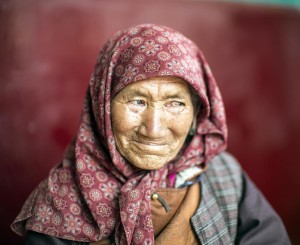Dalai Lama Has Non-Meeting with Obama
 Needless to say, His Holiness the XIV Dalai Lama of Tibet is never really on good terms with the Chinese government in Beijing, which once again leaves Washington in an awkward position. Ever since his first official visit to the White House in 1991 under then-President George H.W. Bush, the Dalai Lama, exiled from the People’s Republic of China, has made a total of 12 visits to Washington over the tenures of four presidencies. When news broke last week that the Dalai Lama was to attend the U.S. National Prayer Breakfast on Thursday, Beijing warned President Obama not to acknowledge Dalai for the sake of U.S.-China relations.
Needless to say, His Holiness the XIV Dalai Lama of Tibet is never really on good terms with the Chinese government in Beijing, which once again leaves Washington in an awkward position. Ever since his first official visit to the White House in 1991 under then-President George H.W. Bush, the Dalai Lama, exiled from the People’s Republic of China, has made a total of 12 visits to Washington over the tenures of four presidencies. When news broke last week that the Dalai Lama was to attend the U.S. National Prayer Breakfast on Thursday, Beijing warned President Obama not to acknowledge Dalai for the sake of U.S.-China relations.
The current Dalai Lama’s bitter record in Beijing has overshadowed his standing as the official religious leader and symbol of Tibetan freedom. Succeeding the title in 1950 at the age of 15, the Dalai Lama watched the development of the Tibetan-Chinese relationship. As relations deteriorated between the ethnic Han majority and the Tibetan minority, a radical Tibetan group, supported by the CIA, plotted an uprising in 1959 in Tibet’s modern day provincial capital, Lhasa. While the uprising was quickly crushed by Beijing, this incident led to the permanent exile of the Dalai Lama, as he fled to India and formed the Government of Tibet in Exile in Dharamshala. Since then, the Dalai Lama has actively engaged in international dialogues about Tibetan liberty in the United States at different occasions, provoking Beijing’s condemnation in response every time.
But just how dangerous is the Dalai Lama in Beijing’s eyes?
Despite popular perception of Dalai as a “moral paragon of the 21st century”, the reality is that Dalai has limited influence behind his exiled government. Within China, the Tibetan independence narrative is arguably rhetoric at best. Domestically, the Chinese population is comprised of over 90 percent ethnic Han, with Tibetans comprising roughly one percent of the entire population. While ethnic Tibetans do make up 90 percent of the population in the province of Tibet, Beijing has been diluting this proportion by promoting mixed marriages and raising the Han population in Lhasa, where Tibet’s major resources are mostly concentrated in an otherwise poor region.
Internationally, while the Dalai Lama has managed to make himself known to much of the Western world, there is little evidence of foreign support that would lead to the formation of a legitimate civil movement against Beijing. In fact, despite their divergent political views, Bush Sr., Bush Jr., Clinton, and Obama have all been consistent in characterizing Dalai’s Tibetan narrative as “a human rights issue with China”, with acknowledgement of Chinese territorial integrity which has always included Tibet.
So why is Beijing still so cautious about the Dalai Lama?
Since the temporary outpouring of support for the free-Tibet movement during the 2008 Beijing Olympics, Beijing has been faced more ethnic tensions than perhaps ever before. With the rise of physical violence that has led to small-scale chaos such as the Kunming bus-station stabbing and the numerous violent terrorist acts in China’s remote Xinjiang province, it has become clear to Beijing that ethnic martyrdom, be it the Uyghurs in Xinjiang or the Tibetan separatists, could easily lead to organized chaos in the hands of radical terrorists. For Beijing, the main concern is the effect these incidents could have in terms of public confidence in social security and government legitimacy.
In the end, it seems like Beijing’s warnings are working. According to a press release on last Thursday’s U.S. National Prayer Breakfast, although President Obama lauded the Dalai Lama as an example “who inspires us to speak up for the freedom and dignity of all human beings”, the two leaders did not attend breakfast together.
Taken together, the Dalai Lama may not really have as much influence on the ground as his position suggests. Beijing will not compromise, particularly since they see him as a dangerous rallying point for separatism and ethnic radicalism. At the same time, the failure of the Dalai Lama to gain international support from countries like the U.S. on the possibility of a sovereign Tibet continues to impede any direct political attempt to pressure Beijing. It seems that for all their talk, the West clearly is not willing to jeopardize relations with Beijing beyond lamenting Tibet’s “human rights issue”.
